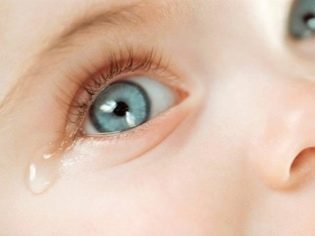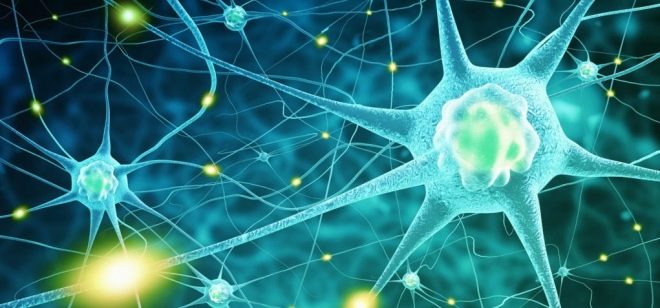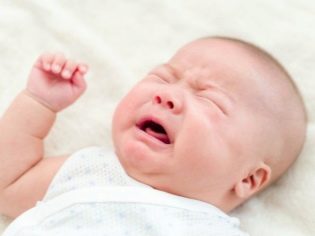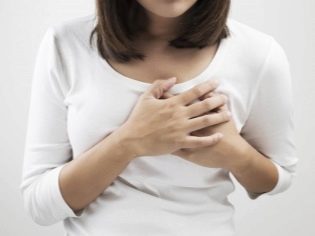Getting rid of postpartum depression: from symptoms to treatment
Postpartum depression is not a myth. It really exists and has a solid scope - according to various sources, up to 70% of puerperas are susceptible to it in varying degrees. Severe forms of neuropsychiatric disorders are, of course, less common. But a mild depressive state can significantly harm the woman herself, her nursing baby, family relationships, and the social connections of the young mother. In this material, we will try to understand the causes and mechanism of the development of a depressive state after childbirth and show you how to get rid of it.
What it is?
Postpartum depression is not a fiction and not an imaginary problem, but a real mental disorder. Depression refers to affective disorders, that is, mood disorders. The term comes from the Latin word deprimo, which means "crush", "crush". It is the depressed state, the lack of interest in anything that characterizes this pathological condition.
Postpartum depression, according to the WHO, occurs in 10-18% of cases of normal delivery. However, the corresponding diagnosis is established, according to statistics, only 3% of women. Usually, these are puerperas with severe depressive disorders. Mild and moderate degrees of depression are more widespread and can cover up to 70-80% of newly-born mothers.
Such a small percentage of diagnosed disorders does not mean that the problem is exaggerated by psychologists and society. Rather, the fact is that women and primary care doctors simply do not know how to distinguish between the first “alarm bells” and habitually write off the deterioration of their condition and attitude to a temporary natural response to childbirth, which, of course, is stress.
What is the danger of post-natal depression, too, not everyone knows. And she can have a very negative impact on the life of the whole family:
- relations between spouses deteriorate, sometimes irreversibly;
- a woman loses social contacts and connections with family and friends;
- the child increases the risk of developing mental disorder in early childhood;
- the child is at risk - not always the mother can adequately give him the volume of love, care and care that is necessary for harmonious development and physical security.
In a state of postpartum depression, a woman practically loses the ability to enjoy something, her interest in what is happening is lost, a reduced melancholy mood prevails, which can be replaced by irritations. Female self-esteem is falling, the young mother is constantly tormented by a not always justified feeling of guilt, she does not see bright prospects and becomes a pessimist, it is difficult for her to concentrate on anything. Often there are disorders of sleep and appetite. In difficult cases, suicidal impulses develop.
The reasons for such a dramatic change in a person can be different. Depression can be of different types - they distinguish large and small forms, atypical depression and dysthymia. Postnatal depression is a distinct species. It develops in direct relationship with childbirth, but it can also develop in women who have given birth, and in men who have recently become young fathers. Women are prone to disruption of the affective spectrum more often
Postnatal depression most often develops in women who have had a difficult birth, women who have given birth to an unwanted child, who live in families where violence (physical and psychological) is a common phenomenon, women who have difficulties with financial support for the child, mothers singles
If a woman before childbirth and even before pregnancy, there were cases of depression, then in the postpartum period the likelihood of developing the disorder increases by 50%.
Dangerous dates - start and duration
Postnatal depression is generally very similar to classic clinical depression, but it has its own nuances. First of all, they consist in the timing of the onset and duration of the disorder.
Most often, depression begins between 1 and 4 months after the baby is born. The basic risk of developing the disorder during this period is quite high - the symptoms of a depressive disorder during this period start in about two out of ten women. The risks increase by almost 50% if a woman was depressed earlier. If the depressive state appeared at least once during the pregnancy, the risk that postnatal disorder will begin in the first four months after delivery is 75%.
The exact timing of the onset of depression is difficult to determine. Typically, experts point to a wide range of terms, starting from the second day after birth and ending six months after the birth of the baby. Slightly less depression develops in the period from six months to a year.
The insidiousness of depression lies in the fact that in half of the cases, in the absence of adequate therapy, it does not pass at all, but is cleverly disguised and becomes a chronic mental disorder. In every fifth woman, signs of different degrees of postpartum neuropsychic disturbances are recorded even after the child turns one year old. In 2-3% of women, depression becomes protracted and gradually, over the years, is transformed into other types of depressive disorders, some of which can not be cured at all.
The faster a woman turns for help, the greater the chance that the pathological mood will be able to win faster. Therefore, the timing of the end, in fact, depend on the woman in labor. The reality, alas, is unsightly: a woman notices signs of frustration, but does not turn for help because she is shy or unwilling to look in the eyes of others as an inferior mother unable to take care of the child. It does not treat depression, but suppresses its manifestations. In this case, the state does not end, and goes into some new forms of mental deviations.
The good news is that postpartum depression responds well to therapy. Moreover, it can be avoided altogether if the woman and her doctor pay sufficient attention to the issues of prevention even while carrying the child.
Why start?
The woman's psyche is in direct relationship with hormonal factors, which is why women who suffer from a depressive state during the premenstrual period often develop postpartum depression. Both the female cycle, and pregnancy, and childbirth always take place with the most active change in the balance of active hormonal substances, and therefore depression can conditionally be considered the “side effect” of endocrine fluctuations in the female body. But it is impossible to shift the blame only on hormones, and this assumption was confirmed by the latest developments of scientists.
The mechanism of development of depression is complex - not only hormonal factors are involved in it, but also social, psychological, biological, economic and domestic ones. In this case, not only the presence of certain negative factors, but also the attitude of the woman herself towards them, the extent to which they are important to her.
What often leads to depression in childbirth? There are a great many answers to this question, we will give the most common situations.
Inconsistency between reality and expectations
Most often, the first-timers are “sinning” with this. During pregnancy, iridescent pictures of touching communication with the baby, idyll in the relationship with her husband after the birth of the crumbs were presented. In reality, this is not the case - for five minutes of pleasant communication, there are several sleepless nights at the bed of a screaming baby, chest pains, and the stitches imposed on the crotch do not imply sex with your spouse.
Even if there are no seams, time and effort to forge an intimate life may not remain if the child is restless. All this is not conducive to the establishment of trusting relationships. Woman disappointed. The reality was more cruel.
Feeling unwell, postpartum complications
We have already spoken about the effect of hormones, and it can be safely put in the first place in this group of causes. But not only they can cause depressive disorder. A woman with a different rate of metabolic processes occur, it is not possible to lose those extra pounds gained during the carrying of the child. Anemia often develops, weakness and poor health after childbirth, especially if they were severe or carried out a cesarean section.
Problems with lactation - mastitis, a small amount of milk, cracks in the nipples, causing pain when feeding and decanting, lack of sleep - all these are physiological factors that contribute to the development of depression.
Predisposition to depressive disorders
There are women at high risk. It includes young mothers who are under the age of 19, as well as women over the age of 38. Maternity and baby care takes too much of their strength. At risk are women and girls who are characterized by pronounced premenstrual syndrome with all its behavioral “vagaries,” women who have abused alcohol and have relatives with mental illness.
Severe first childbirth and a difficult postpartum period very often make a woman at risk of depression after the second childbirth - affected by the experienced negative experience. Also, the doctor should pay attention to the category of future mothers, who during pregnancy were characterized by increased tearfulness, tearfulness, often panicked, complained of intolerable fatigue, hopelessness and anguish.
Social and household "disorder"
This group of reasons is very diverse. Most often, depression after childbirth occurs in women who cannot find a common language with their spouse, face misunderstanding on his part, lack of assistance in caring for the baby, and financial difficulties. Women who have devoted much time and energy to their careers and studies, after the birth of a child, understand that career growth will temporarily stop. Sometimes a woman in such circumstances regrets having given birth to a child.
The reason for depression can be bad living conditions in which it was still possible to live without a child, but it became quite difficult with a baby. A woman with a baby usually does not have the opportunity to visit, visit friends, does not have as much free time as before.
Even the rudeness of the pediatrician in the children's clinic or the hostile attitude of the doctors in the maternity hospital can provoke a drop in self-esteem in a woman.
Inconsistency ideal
There are many stereotypes in society. Films, books, social networks support certain stereotypes of the ideal mom. A woman really wants to meet them, but it turns out far from always. There are not always the strength to get up and, following the first cry of a child in the middle of the night, go to the nursery, there is not always a desire to massage the child, sometimes you want not to go for a walk, but to stay home and get some sleep or read a book. In all these situations, an internal conflict develops between “how a mother should act” and how she acts in reality. With this, sometimes very severe and prolonged depressive disorders begin.
Individual psychological qualities
If the living conditions, if you try, you can change, then your woman’s psycho type cannot change. She received it at birth and lived with it all these years. The most prone to the development of postnatal depression are infantile, dependent, low stress tolerant, suspicious, with low self-esteem, indecisive and timid.
Also at risk are mothers who are accustomed to always and in everything blame themselves, look for their shortcomings, easily inspired.
Signs of
It would be wrong to consider depression of any change in the mood of the newly-made mother to the negative side. A bad mood is a temporary disturbance, and depression is a serious mental disorder, the symptoms and signs of which, if left untreated, will repeat with an enviable frequency.
To find out the exact answer to the question of whether there is depression, you should consult a doctor, preferably a psychiatrist or psychotherapist. But a woman can independently suspect herself of certain signs, because with this neuro-psychological disorder, self-criticism does not suffer, a woman is capable of assessing her condition.
The brightest symptoms of postnatal depression appear in the morning and in the morning. By evening, symptoms usually subside somewhat. Therefore, a woman needs to pay attention to her thoughts and mood in the morning hours.
All signs that may indicate the presence of depressive disorder, can be divided into two groups - basic and additional. The diagnosis of “postnatal depression” can be established only when a woman has at least two major symptoms and four additional ones. Let's look at them more closely.
Are common
Psychiatrists call the classic symptoms of depression a triad. For a depressive disorder peculiar to:
- low mood;
- decrease in interest and inability to get pleasure from something;
- slowness in all its manifestations.
The reduced mood should be considered the predominance of negative thoughts for almost the entire day, if this condition has been going on for more than two weeks. Women look sad, dreary, laconic, speech slightly slowed down.
Declining interests and loss of pleasure are manifested in the reluctance to engage in certain activities that you used to like. A woman does not demonstrate feelings of joy, even if negative circumstances begin to change to positive ones.
Reduced vitality is manifested by fatigue, a desire to lie down even after a slight physical exertion, slowness in actions, slowed thinking, absent-mindedness, inability to concentrate on something. A woman does not want to do anything, in severe cases she falls into a stupor.
Additional
The list of additional signs, of which for the diagnosis should be at least four, is more extensive and varied. Psychiatrists distinguish the following:
- a woman morally destroys herself, refuses to recognize her virtues and achievements, her self-esteem falls;
- the young mother suffers from a strong sense of guilt in the absence of objective justifications;
- a woman becomes indecisive, cannot make even a simple household decision on her own;
- the events are interpreted by the newly made mother with difficulty, the thinking processes take a lot of strength and energy, proceed slowly and hard;
- a woman has dark thoughts, she thinks that everything will end badly, that she can never get lucky, in the future there are no prospects and happiness;
- sleep is disturbed, insomnia or excessive pathological drowsiness develops, appetite suffers (in one direction or another - either you want to eat all the time, or you don’t want to eat at all);
- thoughts of a possible suicide appear as a way out of a difficult situation that is permissible in extreme cases.
Nine out of ten puerperas with postnatal depression have increased anxiety.
Depression cannot exist for a long time only at the mental level, it goes beyond psychosomatic in a few days, which means that complaints appear completely specific, not ephemeral. Young mothers often start to complain about:
- incomprehensible weight gain or, conversely, incomprehensible weight loss;
- regular bowel disorders (diarrhea, loose stools, or the alternation of these two unpleasant symptoms);
- decrease in sexual desires up to their complete absence, decrease in sensation during sex, if it occurs at the initiative of a partner;
- constant pain, which can be located absolutely in any part of the body - in the heart, in the stomach, bladder, kidney, lower back, headaches, etc .; they appear spontaneously, last a long time, a woman cannot specify their precise localization, they are purely psychosomatic;
- instability of blood pressure, rapid heartbeat;
- increased skin dryness, hair loss, brittle nails.
At the household level, relatives should also pay attention to the oddities in the behavior of women. First of all, depression after childbirth is manifested by negligence - a woman ceases to responsibly perform her economic duties, ceases to monitor appearance, sometimes neglects basic hygiene requirements. Communication with her "does not add up" because of her alienation, unwillingness to talk heart to heart not only with her husband, but also with other relatives.
If the family already has children, the woman can lose love for them, become almost unemotional, indifferent. The need to feed the baby may cause irritation, a clear dissatisfaction. At the peak of such a symptom, some mothers of infants make the terrible decision about suicide or murder of a child - the daily news chronicle is overflowing with such cases. If the media reports that the alleged cause of death was "financial difficulties, family relations," we can safely say that the matter is in depression, because under any difficulties and quarrels with her husband, a normal, mentally adequate mother will not be able to step over her own instinct, the strongest in nature - the instinct of protecting offspring.
Another very bright sign on which relatives, friends and relatives of a woman should definitely pay the most serious attention is the unfounded fears of the young mother for the health of the child. It happens that in the absence of any reason for concern, the mother re-reads the encyclopedias, the Internet, calls the doctors and demands that the child be examined, because she suspects that he cannot formulate something. Sometimes this phobic syndrome manifests itself as fear of conspiracies - “the child could be replaced in the maternity hospital,” “the doctor did not specifically prescribe us antibiotics for the child to die,” and so on.
Severe postnatal depression has the character of psychosis, and at the same time it develops a depressive component and a manic one, which we described in the paragraph above. Psychoses can be different:
- toxic-infectious - usually develops at 2-12 days after birth and is associated with inflammatory postpartum complications occurring against the background of high temperature;
- endogenous - arising after giving birth on any day, if the woman has a mental illness in history or has a genetic predisposition to it.
Severe cases of postpartum depression with the development of psychosis can manifest aggression, confusion, delusions. A woman may begin to deny obvious truths, for example, “white is white” or “Earth is a planet.”
Obsessive ideas and obsessive movements may develop. To severe depressions can be attributed (quite, by the way, unexpectedly!) The complete absence of severe mental somatics.That is, a woman behaves normally, does not express anything negative, does not throw a knife at the household, does not threaten to kill herself or a child, she leads a normal life. But at the same time he does not eat, gives food to animals, neighbors, children, does not trust relatives (if there are no grounds for that).
Such quiet and latent depressive moms, as a rule, express extreme distrust of doctors in general and of their doctor in particular, abuse the government and social security, do not trust neighbors, girlfriends. In the end, they close, and then signs of depression begin to gain momentum and become more apparent.
Diagnostics
If a woman herself feels “wrong”, moreover, others notice the strange behavior, trying to cope with the problem on her own, fighting to “crush depression” is not worth it. It is imperative to establish the exact type, state resistance. This is done by psychiatrists and psychotherapists.
There are special tests and questionnaires that allow you to accurately determine the presence and combination of the main and additional symptoms inherent in postnatal depression. For self-assessment, the Beck scale or the Zang scale may be used. There is also an Edinburgh scale for postpartum depressive disorders. It was developed in Edinburgh in 1987. This is a questionnaire. By answering his questions honestly, you can identify signs of depression with an accuracy of up to 86%.
A woman can independently undergo testing, but if the results are not satisfactory, she should definitely visit a specialist, since the diagnostic tasks lie not only in detecting the very fact of depression, but also in differentiating it from other conditions.
Often, depression is confused with the so-called “sadness syndrome of childbirth”, which in the Western medical literature is called and at all poetic - “postpartum blues”. A woman with him feels sadness, but she is "bright", which is a normal psychological reaction. Most often, the peak of sadness reaches on the fifth day after birth. It also disrupts sleep, increases fatigue, a woman can cry for no apparent reason. But as the hormonal background normalizes, the “postpartum blues” passes by itself. How long the condition lasts is difficult to say, but usually not more than 2-3 weeks.
Also, depression after childbirth should be distinguished from the syndrome of "grief" if a woman has recently suffered severe stress - a divorce, the death of a loved one. This condition is also temporary and is easily corrected with the support of loved ones.
How to get rid?
Treatment of postnatal depression is carried out in two directions - psychotherapeutic methods and medicines.
Psychotherapy effectively helps the puerperal out of the state of depression, if the depression itself is not serious. A woman can deal with a psychotherapist, psychosomat or a psychologist. She is taught relaxation, autogenous programming of positive attitudes for the future. The specialist also conducts classes not only individual, but also family, marital, since relatives and loved ones help the woman more to survive a depressed woman.
In moderate to moderate to severe forms of depressive disorder, such methods are indispensable. It is for this reason that it is so important to overcome yourself and consult a doctor who will tell you if the young mother needs anti-depressants.
Medicines are prescribed for any form of depression. With mild - only when psychotherapeutic treatment for 2.5-3 months did not bring the desired result. Antidepressants are first-line drugs. They help most women. For severe forms, tranquilizers and neuroleptics may be used at the discretion of the doctor.
Antidepressants in their action correspond to the name - raise the mood, stimulate the brain, eliminate muscle tension, have a slight slight hypnotic effect. Taking antidepressants is not very compatible with breastfeeding, in each case the decision is made individually.
When prescribing tranquilizers or neuroleptics, a woman is recommended to transfer the child to artificial feeding. Simultaneously with the intake of drugs, psychotherapeutic exercises are recommended.
To treat mild or moderate depression is sometimes allowed with non-prescription drugs that contain St. John's wort extract - an excellent natural antidepressant. Good reviews are left about Negrustin, Deprim Forte.
Within two weeks, the woman usually manages to overcome the main symptoms of the disorder. To cure a young mother completely with mild forms with adequate therapy can be in 1-2 months. Protracted depression is treated longer - up to a year.
The most delicate question that worries both patients and their relatives is whether they will not put a woman in a psychiatric hospital if she see a specialist for help. For this you can not worry. Depression is better treated if the woman is in a familiar environment - at home. In hospitalization for a psychiatric clinic, it may be necessary only in the following situations:
- attempted suicide;
- the woman categorically refuses food;
- psychosis began;
- there are mania.
In other cases, helping a young mother to find peace of mind can be at home, with the active support of relatives, husband, children, friends. Relocation of places is useful - traveling, as well as joint family matters, for example, replacing wallpaper in the kitchen or caring for a dacha or garden.
Prevention
Postpartum depression is not the most pleasant state, which is easier to avoid than to be treated for a long time. Professionals of maternity homes are recommended to engage in the prevention of depressive disorders of women in childbirth both before and during and after childbirth. Doctors of women's clinics have the same recommendations, but in practice obstetrician-gynecologists do not always pay enough attention to this issue. A large number of patients, a record, a queue - all this makes the consultation in consultation more formal, during which they restrict themselves to weighing and the usual question of well-being. Meanwhile, the Ministry of Health prescribes a careful study of the history, ascertaining possible kinship with mental patients, monitoring the behavior and reactions of a pregnant woman throughout the entire period of carrying the baby.
Effective prevention of depression is targeted preparation for childbirth. If a woman attends courses for expectant mothers, if she is knowledgeable about how birth goes, how to manage her feelings and emotions, how to behave at certain stages of labor, the probability of postnatal depression is significantly reduced. It is good if a woman is motivated to communicate - she is happy to keep in touch with other future mothers, doctors, her friends and neighbors. It is necessary to encourage in every possible way relatives and friends of the woman. A moderate exercise is also considered to be psychologically beneficial - gymnastics, swimming, Pilates, and yoga even during pregnancy.
A woman should be on time - before and after childbirth, to get advice from a psychologist on how to react and what to do if depression appears. No, perhaps, in the world a woman who never regretted that she had become a mother. Difficult minutes are in any motherhood. But a good mother is not one who does not allow negative thoughts, but one who knows how to act contrary to them is constructive and positive.
Opinion of Dr. Komarovsky
Dr. Komarovsky himself, in his books and programs about postpartum depression, spoke infrequently, mostly mentioning it in passing.But his colleague Dr. Olekseev, whose well-written article Evgeny Komarovsky cites on his own website in the “Library” section, describes in great detail the dangers of undervalued pathology, which is not always taken seriously in society.
The author of the article (and Komarovsky totally agree with him, once he published the material on his resource), states that you should not be afraid of treatment with antidepressants, because they do not cause drug dependence, they are not drugs. For more than 50 years, the whole world has successfully used these tools to help women in labor, and the results are impressive.
With the participation of fathers, friends and other people close to the young mother, treatment, according to the doctor, is fun and fast. The main thing is that their relatives should learn well - a woman does not pretend, does not attract attention, she is really sick and she needs their sincere participation.
If a woman is breastfeeding, you should not refuse treatment. Pharmacology does not stand still. There is a list of antidepressants that are not detected at all in the baby’s blood, if a nursing mother uses them, that is, they do not harm the baby. These are Parokestin, Fluvoxamine, Sertralin, Duloxetine, and Bupropion.
Reviews
In the opinion of women, at the first time after the onset of depressive symptoms, it is important not to sit idle, always try to occupy and distract yourself with something. Often it helps to cope with the condition. The most difficult, according to reviews on thematic forums, is to overcome the reluctance to breastfeed. Women do not like to admit this, but the problem is the place to be.
Often, unfortunately, the problem has only one way out - the woman refuses breastfeeding and transfers the baby to dairy adapted mixtures. For this, she feels shame and depression is aggravated.
What are the causes of postpartum depression and how to avoid it? The answer to this question awaits you in the next video.















































